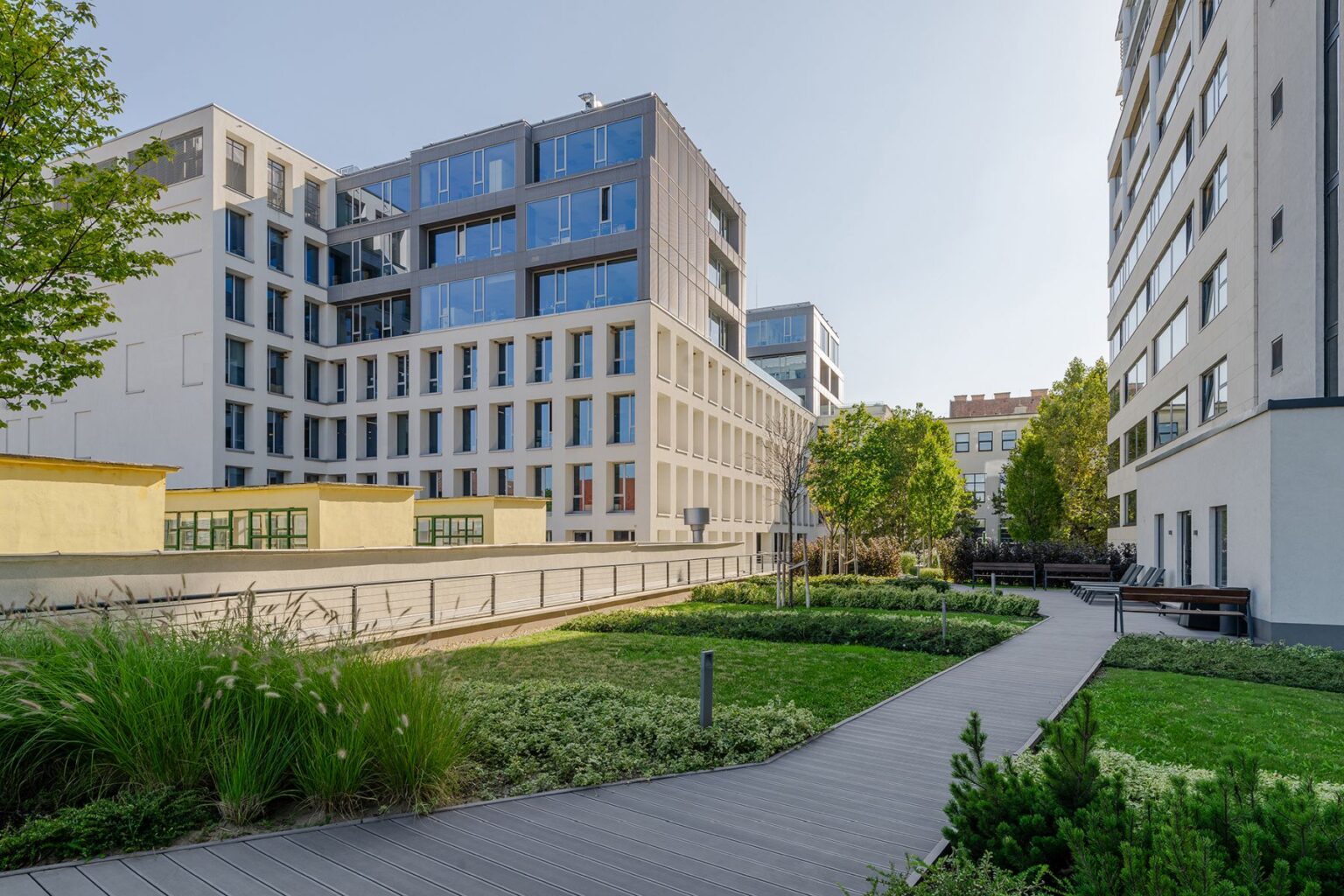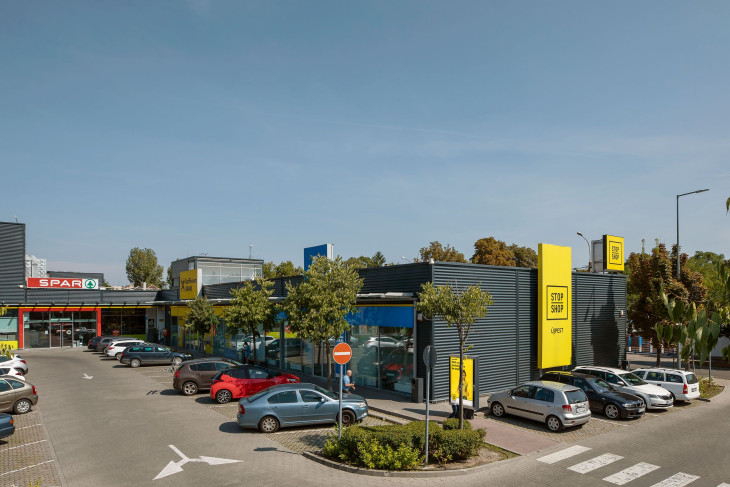At first glance, that sale might seem surprising. As Gereben acknowledges, the hotel sector has produced a “fantastic performance” post-COVID and remains a popular investment choice. However, in the case of the Budapest Marriott and its sister hotel in Vienna, there are strong mitigating factors that make this the ideal time for CPI to sell. “Agreements like the one with Marriott are becoming increasingly management-intensive and costly,” says Gereben. “These are long-term contracts with strict provisions on owners’ income and the funds that must be invested back into the property. And while the hotel enjoys one of the best locations in Budapest, we should not forget that the building itself is 60 years old,” the country manager notes. After multiple rounds of the tendering process, a buyer had been identified by the end of March, and the transaction is expected to be closed by the end of September. No one should think that the disposal of the Marriott Hotel indicates a desire to move out of the hospitality sector by CPI, however. On the contrary, the firm is refurbishing two four-star superior downtown hotels on Mérleg utca that are adjacent to one another and the Four Seasons. The 54-room Mamaison Hotel Chain Bridge Budapest reopened on July 1; the 96-room Mamaison Vibe Hotel Downtown Budapest is due to open in December. “We still believe that good quality hotel assets in good locations have an added value to the portfolio. Mamaison Chain Bridge opened July 1; in the past two months, the hotel has been running at 85%-plus occupancy.” Nor are the hotels the only new developments on CPI Hungary’s books. On the day of our interview, the plot for a new Stop Shop retail park in Salgótarján, Nógrád County, in northeast Hungary, was handed over to the general contractor. “It’s approximately 8,000 sqm, and we have already achieved 100% prelease agreements for the total GLA. This shows that there are still regions and cities where, if you develop quality products like Stop Shop, there is room for improving the portfolio and developing retail,” Gereben says. “Tenants are keen to expand in such locations; even if the average purchasing power is declining in Hungary, there are still opportunities. Based on the success of pre-leasing this location, we are considering further Stop Shop developments. We have other plots in Hungary with potential, and are exploring whether, in the near future, it’s worth expanding there.”
Strategic Positioning
There are also decisions to be made in the office sector, which is currently under pressure. Compounding the reduced interest from the international market is the knowledge that all government organizations and related agencies must move into state-owned properties by 2027. That means an additional 500,000 sqm of domestic tenant need will be withdrawn from the commercial office real estate market. CPI has examined all its office locations, assessing their strategic positioning, both geographically and from a business perspective. A number have been identified that might have the potential for a change of function to residential or hotel use. A second option is better utilization of the vacant office space. With business in general much more volatile than it was five years ago, companies need greater flexibility. The average deal size has decreased from more than 1,000 sqm to nearly 500 sqm, indicating that companies are reluctant to commit to larger spaces. “We had to reconsider how we’re able to provide flexible working space for companies, where they don’t have to commit themselves to a longer period, but can expand or give back according to their needs,” Gereben says. The answer is a product range where office spaces of varying sizes are connected to one common area, fitted out by CPI at its expense.
“We’re taking a bigger floor plate and creating four, five or six units, dependent on the characteristics of the space, which are connected to a primequality common area with meeting rooms, break-out rooms, kitchen and collaboration spaces,” Gereben explains. The concept is similar to a co-working space, but on a premises basis rather than per table or room.
Great Potential
“In this way, the tenant doesn’t have to create that common space within their own premises, because it’s given; they only have to place their workstations in their area. We see great potential and have already seen success with our refurbished offices rented out to companies. The terms and conditions are not so rigid, so you can rent it for a year or even for six months and then move on if required. Usually, whoever rents out these spaces wants to stay longer, but the opportunity is there,” Gereben notes. At the same time, CPI has been pioneering its CPI Club, creating a community network between its various clients where they offer one another preferential discounted services. It also provides the opportunity for tenant employees from one building to use a meeting room at another if it is more convenient. CPI had hoped it might reach 2,500 registered members by the end of this year. Speaking at the end of August, the total had already reached 3,200. “It seems that this whole club or loyalty program concept is working and popular with our tenants,” Gereben says. For more detail on the concept, see “Pioneering a Fresh Approach to how Real Estate is Used” in the Sep. 6, 2024, issue of the BBJ. The third option is disposal. CPI doubled its portfolio size in 2022 with the acquisition of Immofinanz and S Immo. A thorough review of the assets identified those that were most management-intensive, had long-term vacancies, or required substantial capex. “We assessed all these factors and identified four office buildings to place on the market. Two have already been sold, one at the end of 2024 and the other this summer, while the remaining two are attracting significant interest. I am confident we will be able to sell them as well.” Gereben says CPI Hungary is a prime example of a long-term real estate investor and operator that recognized in time the need to respond to change and develop its services with an entirely new approach, reshaping both its business operations and the way it builds relationships with tenants.






.jpg)





